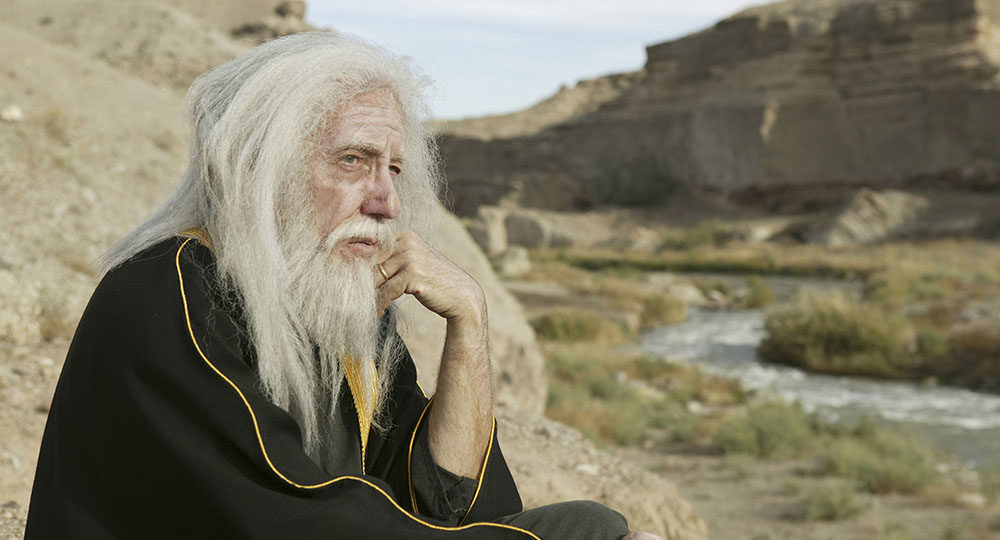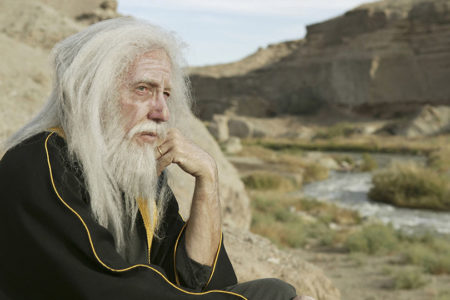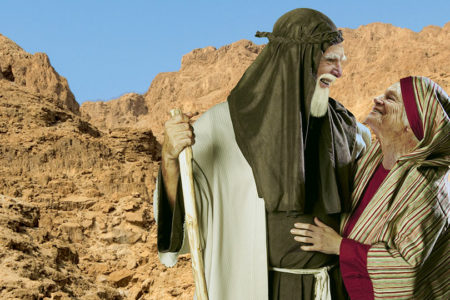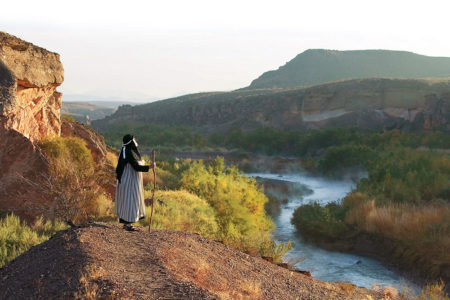Abraham’s Three C’s
The great American civil rights leader Dr. Martin Luther King Jr. once said, “The ultimate measure of a man is not where he stands in moments of comfort and convenience, but where he stands at times of challenge and controversy.”
From the time God called him (Gen. 12:1–4), Abraham faced many challenges and controversies. He assessed himself well when he said, “I . . . am but dust and ashes” (18:27). Yet by God’s grace, his life counted for eternity.
A broad, deep, and inerrant biblical perspective of Abraham can be found in Genesis, the first book in the Torah (Pentateuch). It reveals a fundamental truth about this Jewish patriarch: Abraham “believed in the Lord” (15:6). He was a man of deep faith.
Yet there was much more to his character. The beauty of his life is depicted honestly in the Bible, which reveals his blemishes as well as his blessings. Though imperfect, Abraham’s life of faith was marked with courage, compassion, and credibility.
When he followed God’s command to leave Ur of the Chaldeans, his family, and his father’s house to go to a land God would show him, Abraham became fully vested in his new life and new country.
His Courage
Abraham must have known of the trouble brewing near him in the Valley of Siddim (Gen. 14:3). It was, in fact, the first war recorded in the Bible. Four eastern kings representing city-states (nations) formed an alliance to rebel against five Jordan Valley kings and their city-states (vv. 1–5). The conflict was not Abraham’s business until the four kings took Lot (v. 12), Abraham’s nephew.
Without hesitation, Abraham organized a surprise attack, assembled 318 of his servants, overtook the army, rescued Lot, and brought him back with all the goods that had been taken (vv. 13–16). Abraham displayed great courage by doing the right thing at the right time, completely disregarding his own welfare.
Most believers won’t fight in a physical war like Abraham. But when they face overwhelming circumstances, they can display the courage that comes from a life yielded to Christ, who empowers them.
His Compassion
While Abraham’s relationship with God was growing, Sodom’s evil population was rebelling against Him. Punishment was coming because the outcry against Sodom and Gomorrah was great and the cities’ sins were extremely grave (18:20).
The Lord Himself appeared to Abraham to deliver His message of judgment (v. 1), soon to be carried out by two angels who had accompanied Him (v. 2).
God did not withhold His plan because He wanted Abraham’s household to “keep the way of the Lᴏʀᴅ, to do righteousness and justice” (v. 19). Abraham knew Lot lived in Sodom. He also knew God was justified in destroying the sinful city and that he was “but dust and ashes” compared to God (v. 27).
Yet, motivated by compassion, Abraham boldly intervened. He asked the Lord two major questions: “Would You also destroy the righteous with the wicked?” (v. 23) and “Shall not the Judge of all the earth do right?” (v. 25).
Abraham had compassion for Lot and his family, as well as for other righteous people who may have lived in Sodom. In true Middle Eastern form, he demonstrated chutzpah (Yiddish for “audacity”) by negotiating with God. He started the bargaining by asking Him to spare Sodom if there were 50 righteous souls in the city. God agreed.
He continued to barter, asking on behalf of 45, 40, 30, 20, and finally 10 righteous souls (vv. 24–32). God agreed to spare Sodom if it had 10 righteous souls. But there was only one: Lot. God was willing to spare Lot’s entire family; but in the end, only Lot and his two daughters survived.
Abraham was not blind to God’s righteousness and holiness. Yet he displayed great boldness by pleading with the Lord. Believers should stand boldly before the Lord in prayer and plead to Him on behalf of others. Like Abraham, we should have compassion for people and act on it.
His Credibility
Though Abraham was a “foreigner and a visitor” among the Canaanites, a pilgrim in the Promised Land to which God called him (23:4), his neighbors recognized his strong character and credibility. He had left behind his comfortable life in Ur to follow the Lord many years earlier. There was no better way to show that Canaan had become his home than by burying his dead there.
When his wife, Sarah, died in Hebron, Abraham had to find a place to bury her (v. 2). His neighbors were not believers in the one true God. Yet they recognized Abraham’s leadership and integrity, calling him “mighty prince” (literally, ”a prince with God”) and offered him “the choicest” of their burial places (v. 6).
Abraham wanted a cave at Machpelah, owned by Ephron the Hittite, and was willing to pay full price for it (v. 9). Ephron was interested in selling but wanted Abraham to buy the whole field. Again, in true Middle Eastern form, bargaining ensued. Transactions like this were accomplished at the city gate (v. 10), allowing the public to hear and observe the specifics of the deal.
Abraham maintained his testimony, which was put on full review, purchasing the field and the cave for 400 silver shekels. Sarah was buried there and later, Abraham, Isaac, Rebekah, and Leah (49:29–31).
Abraham knew people were watching him, and he consistently demonstrated his upright character. As believers, we should do likewise.
Abraham lived out Martin Luther King Jr.’s words long before Dr. King articulated them. In times of challenge and controversy, his courage, compassion, and credibility ruled the day.







